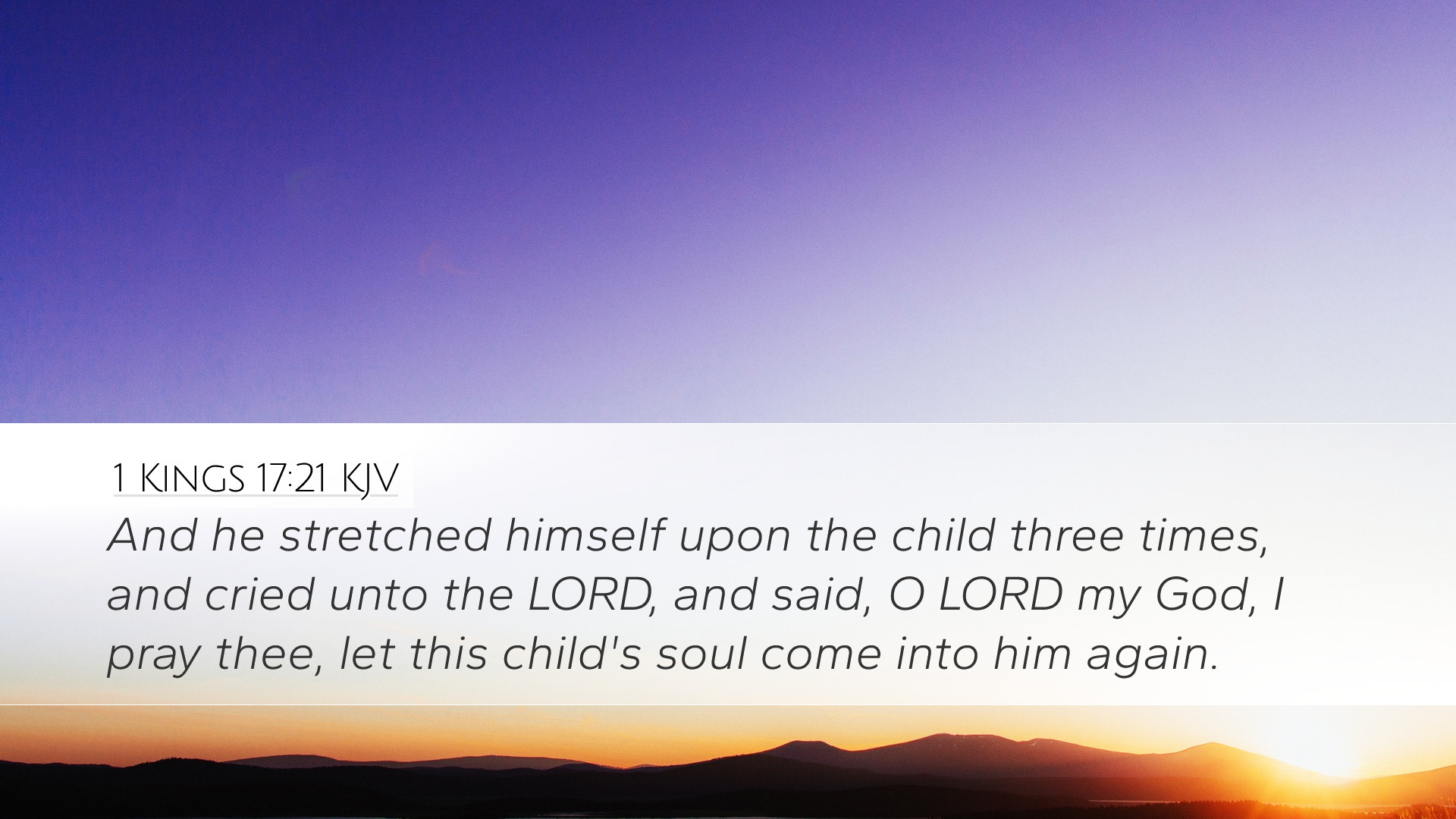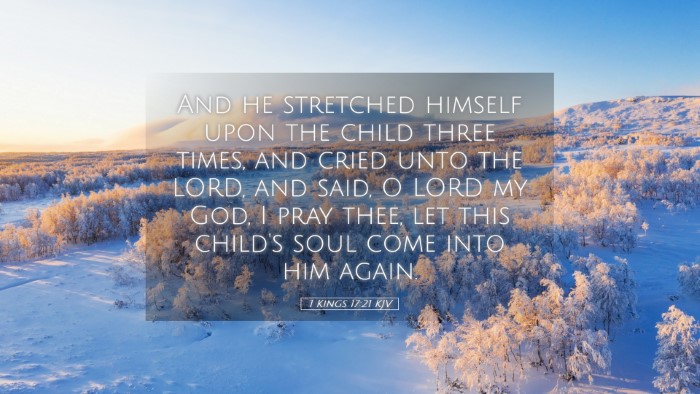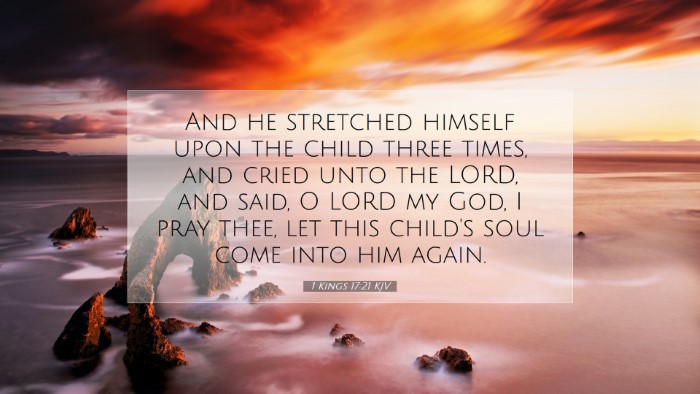Commentary on 1 Kings 17:21
Verse Text: "And he stretched himself upon the child three times, and cried unto the LORD, and said, O LORD my God, I pray thee, let this child's soul come into him again."
Introduction
The act of resurrection in 1 Kings 17:21 marks a profound moment in the ministry of the prophet Elijah. This verse encapsulates the themes of faith, divine intervention, and the power of God over life and death. In the broader narrative, Elijah's encounter with the widow at Zarephath and her son serves as a pivotal demonstration of God’s providence and mercy.
Examination of the Text
Elijah, after having been sent by God to the widow of Zarephath, faces a severe trial when her son becomes ill and dies. The prophet’s response features several critical elements worthy of deeper exploration:
- Physical Actions: Elijah's act of stretching himself upon the child three times illustrates both intercession and earnestness. Matthew Henry emphasizes that this act symbolizes his intense desire for the child's revival and his commitment to God’s power. His actions reflect the seriousness of the situation and underscore the prophet's role as an intermediary between the child and God.
- Crying Out to God: The repeated cry, "O LORD my God," signifies the personal relationship Elijah had with God. Albert Barnes notes that it is not a mere ritualistic invocation; rather, it is a heartfelt plea born from desperation and faith. This moment reflects the essence of prayer as a powerful tool that communicates deep human need to a responsive deity.
- Let this child's soul come into him again: The request for the child’s soul to return is rich in theological implication. Adam Clarke remarks that the term "soul" encompasses both the physical and spiritual essence of life. Elijah's faith in God’s ability to reverse death is a testament to the belief in God as the ultimate giver of life.
- Significance of the Number Three: The three stretches can also be interpreted symbolically. Henry expresses that the number three in Scripture often signifies completeness or emphasis, suggesting that Elijah's prayer was thorough and deeply sincere, stressing his yearning for divine intervention.
Theological Implications
This verse raises several important theological discussions relevant to pastors, students, and theologians:
- God's Sovereignty Over Life and Death: The incident represents God’s authority over the life cycle. As evidenced in this narrative, even in the darkest moments, God holds the power to restore life. It invites reflection on the nature of divine sovereignty and the complexities of human suffering.
- The Role of the Prophet: Elijah exemplifies the characteristics of a true prophet—not only does he proclaim God’s word, but he also engages in acts of compassion and intercession. His actions provide a model for contemporary ministry that focuses on both truth-telling and caring for the vulnerable.
- Prayer as Relationship: The intensity of Elijah’s prayer speaks to the necessity of relationship with God in prayer. This highlights the aspect of prayer that is more than asking; it is deeply relational, which is critical for both personal and communal worship.
- Foreshadowing of New Testament Events: This moment can also be seen as a foreshadowing of the miracles of Jesus, particularly the raising of the dead (e.g., the son of the widow of Nain). It establishes a continuity of God’s redemptive purpose through history.
Application for Pastors and Students
In light of the commentary from Matthew Henry, Albert Barnes, and Adam Clarke, several applications can be drawn for individuals in ministry and study:
- Encouragement in Crisis: Like Elijah, pastors are often called to minister in crisis. The example set here illustrates the importance of deep faith and earnest prayer when confronted with suffering and death.
- Faithful Intercession: It reminds students of theology and future ministers of the importance of intercessory prayer and the belief in God’s capacity to act miraculously in dire circumstances.
- Understanding Suffering: The narrative challenges the faithful to grapple with the reasons for suffering and the hope of God's ultimate restoration. Pastors are encouraged to preach on the hope found in God amidst human suffering.
- Shepherding the Vulnerable: Elijah’s care for the widow and her son serves as an important reminder for pastors to remain attentive to the needs of the vulnerable in their communities.


